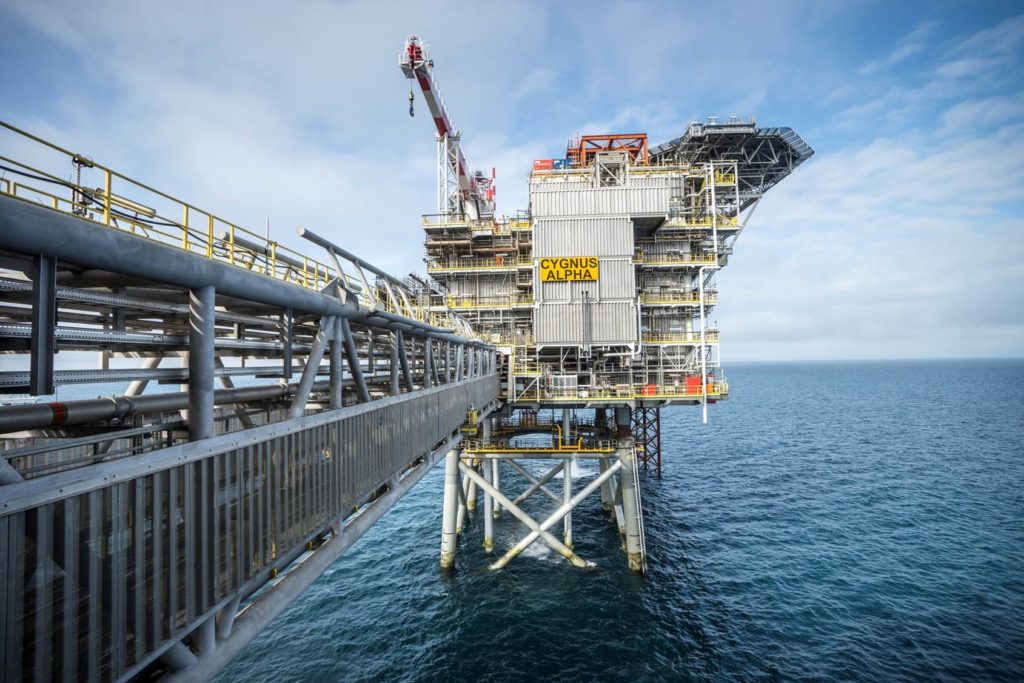
The Oil and Gas Authority’s (OGA’s) probe into a capacity dispute between two operators shows the regulator is walking a difficult tightrope, an Aberdeen lawyer said.
Valerie Allan, partner at CMS, said the OGA was striking a balance between helping to ensure new barrels are delivered, without deterring future investment in the basin.
David McEwing, partner at Addleshaw Goddard, said the regulator had shown it understood operators had to make decisions from a commercial standpoint, but was prepared to use the powers given to it by the Energy Act 2016 to “bang heads together”.
In June, the OGA initiated its own “non-binding dispute resolution” investigation into the disagreement between Neptune Energy and Spirit Energy.
Spirit hoped to produce gas from the Pegasus field via the Cygnus platform, operated by Neptune in the southern North Sea.
In 2017, the companies saw eye-to-eye and signed a non-binding heads of terms agreement.
But Neptune now believes the installation does not have enough capacity to accept gas from Pegasus, which is thought to be capable of producing 15 million barrels of oil equivalent.
Last week, the OGA said it had uncovered “various communication breakdowns” and published a number of recommendations.
The OGA said the firms should improve their “collaborative behaviours” and identify “third-party gas opportunities” for Cygnus over the next five years.
They should also work on removing the current “blockers” to the Cygnus installation’s ability to take in gas from other nearby fields.
The OGA also made clear that it was not suggesting that capacity for Pegasus should be prioritised over gas from the Cygnus field.
The OGA said Spirit should keep looking for alternative export routes for Pegasus.
Spirit said it had already identified a number of options.
Ms Allan said the investigation was a clear sign of the OGA living up to its pledge to become more open about the ways it wields power.
In November 2018, OGA chief executive Andy Samuel told Energy Voice: “Next year we’re going to have more transparency about what we’re putting out in terms of letters and investigations.
“We will share more about how the process works so that people coming to the basin know what culture we expect.”
Sanctions enforceable by the OGA are graded from private warnings and public enforcement notices, all the way up to financial penalties capped at £1 million, operator removals and licence revocations.
As well as publishing updates on the Neptune-Spirit dispute, the OGA has an accessible online case register, which provides details of disputes and the work of its sanctions team.
Ms Allan said: “Publications of this type will help industry players understand the issues the OGA is focusing on and the behaviours it considers necessary to comply with the maximising economic recovery strategy.”
She believes the outcome of the Neptune-Spirit case would give comfort to infrastructure operators, given that Neptune was allowed to prioritise existing production.
At the same time, the OGA wants more action taken to prepare the Cygnus installation to accept production from other nearby fields.
Ms Allan added: “The OGA continues to have to walk the difficult tightrope between maximising economic recovery and not deterring future investment in the basin.”
Mr McEwing said the OGA appeared to be fulfilling one of the recommendations of Sir Ian Wood’s 2014 review of UK continental shelf oil and gas recovery – namely, the need for a regulator which can “flex its muscles”.
Although the recommendations for the Cygnus case were non-binding, the OGA does have “teeth” it can use to make things happen, Mr McEwing said.
“We hope this intervention is a sign of things to come,” he said. “If companies get entrenched in their commercial positions, it doesn’t help anyone.”
Mr McEwing also said the southern North Sea was an area that was “ripe for dispute”.
“That clearly is an area where you need to have tie-ins to some of the bigger developments and Cygnus is one of the biggest in the area,” he said.
“The UK needs smaller tie-ins to be developed because we don’t have sufficient gas supply and there is excess infrastructure in the southern North Sea.”
Recommended for you

